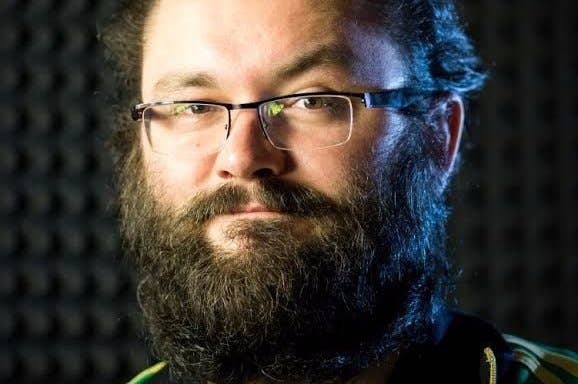"Like a spark thrown into a barrel of explosives"
11 bit's Pawel Miechowski describes the studio's move from successful tower defense series Anomaly to make This War of Mine
11 bit Studios was best known for the Anomaly Warzone Earth series of tower defense strategy games before it released last year's sobering war survival piece This War of Mine. It was a significant departure for the developer, trading in the straight-forward entertainment of an already-successful indie franchise for a game that had no intention of being fun to play, much less make.
Despite that, 11 bit senior writer Pawel Miechowski told GamesIndustry.biz at the Game Developers Conference earlier this month the change in approach was anything but a tough sell to the development team. After turning out five Anomaly products in just over three years, 11 bit was ready to move on.
"It was like a spark thrown into a barrel of explosives," Miechowski said. "Everybody was ignited by the idea instantly. We didn't have to convince anyone to do it. It was actually hard to convince the guys to make the last Anomaly because we'd had a bit of a syndrome of burning out. I had a similar feeling because I was working on the last Anomaly as well. I understood it was profitable for us and the fans liked it, so commercially it should be a safe project, and indeed it was. But with Anomaly, it was actually harder to [develop] than This War of Mine."
"I couldn't tell people, 'Please play it. It's going to be fun.' Because it's not fun, it's depressing."
This War of Mine wasn't just easier to make. In a market crowded with new games, This War of Mine's subject matter also made it easier to sell.
"What we were afraid of wasn't proper visibility, because the gaming community and the press got the topic instantly and helped us," Miechowski said. "Many people actually wrote, 'Finally someone is doing this. Thank you for that!' So there was a need for such a game. I think we were more afraid of negative feedback, and we got some. The backlash was minor, but some people were saying that games are supposed to be entertaining, not depressing."
Miechowski attributes that absence of uproar to the studio's focus on being crystal clear about exactly what sort of experience players could expect. The game was intended to foster empathy and compassion in the player, and 11 bit sought to hammer that point home in every bit of communication with the public.
"It was important that we communicated the respect we had for the topic," Miechowski said. "I couldn't tell people, 'Please play it. It's going to be fun.' Because it's not fun, it's depressing. So what I would rather say was if you want to have a bit of a picture of what war looks like, try it."
As a result, This War of Mine also benefitted from a sort of novelty. There's a process of maturation happening in games much like the one that happened in movies a century ago, Miechowski said. And while This War of Mine is by no means the first game to tackle sensitive subject matter with a more thoughtful approach (he name-checked Gods Will Be Watching, Coming Out Simulator, Papers, Please, and That Dragon, Cancer as other examples), the trend is only getting bigger right now.
"We just broke the barrier lying between people thinking games are only entertainment for teenagers and something bigger than that," Miechowski said. "It's not attacking traditional gaming; it's just perceiving [games] as a tool to cover different stories... There will be games about tolerance, acceptance of diversity, maybe battling politics, and there will be more. Not as an opposition to traditional gaming, but something that expands traditional gaming."
"[W]hen I pay $60 for a game, I expect it to be power fantasy escapism for me. It's the indie where you can accept the lack of AAA graphics or something because the value is not in the graphics."
Financially, This War of Mine has done phenomenally well for the company. Miechowski estimated the production and marketing budget for the game between $600,000 and $700,000, an amount it paid off in its first two days of availability on Steam last November. By the end of the year, the game had pulled in $5 million, more than any of the Anomaly games.
Despite that financial success, Miechowski said the market niche of games as a vehicle for social commentary is in no danger of drawing AAA competition. They're too focused on delivering "plain entertainment" to fully commit to grappling with serious issues, he said, pointing to the Call of Duty: Advanced Warfare "Hold X to Pay Respects" scene as evidence.
"That was a moment of engagement and emotion pushed too hard," Miechowski said. "That's not how you raise emotions in games, but I would think they'll learn their lesson, so they'll add a bit of seriousness, but AAAs will stay in the plain entertainment area. I kind of understand it, because when I pay $60 for a game, I expect it to be power fantasy escapism for me. It's the indie where you can accept the lack of AAA graphics or something because the value is not in the graphics. It's in storytelling, in a serious topic."
11 bit hasn't announced its next game, but don't expect This War of Mine to get the same franchise treatment as Anomaly. Miechowski said the studio's next game will be somewhere in between Anomaly and This War of Mine when it comes to thematic weight.
"We don't want to be put in a box labelled 'serious war game developers,'" Miechowski said. "We have a completely different idea, something original and I believe very good. But there's a bit of mature games in it as well."









